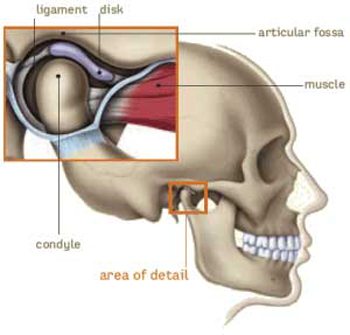Does your ear hurt and feel full and you think it might be related to TMJ? How can you determine the real cause of your symptoms?
What Is TMJ?
TMJ has is an acronym that is commonly used to describe dysfunction with the temporomandibular joint, which connects your lower jaw (mandible) to the bone on the side of your head (temporal).

There are many signs and symptoms associated with TMJ. And you don’t have to experience them all to have a TMJ disorder. You might be experiencing one or more of the following signs or symptoms:
- Pain in or around your ear
- Chronic headaches
- Chronic earaches
- Tinnitus (ringing in your ears)
- Chronic neck pain
- Difficulty opening and closing your mouth
- Clicking or popping noises when you open your mouth
- Jaw clenching
- Jaw pain or soreness that is worse in the morning or late afternoon
- Jaw pain when you chew, bite or yawn
- Tender jaw muscles
- Sensitivity in your teeth
- Bruxism (grinding your teeth)
What Are the Signs and Symptoms of an Ear Infection?
Although you may not be experiencing all of them, common signs and symptoms of an ear infection in adults include:
- Ear pain
- Fluid draining from the ear
- Impaired hearing
- Fullness in the ear
- Nausea
- Dizziness
- In severe cases, a stiff neck and/or fever
If you think you have TMJ, schedule an appointment with a dentist who has advanced training in the disorder. He or she will examine your teeth, jaw, and bite to make the determination.
How Will It Be Treated?
- If you have TMJ, a customized mouthguard will be recommended for you to wear while you sleep. It will relax your jaw and prevent bruxism, which is often related to TMJ.
- Relaxation and jaw exercises might be recommended to help relax the muscles.
- It can also help to alternately apply hot and cold packs to the side of your face where the muscles are sore.
What If Your Symptoms Don’t Match TMJ?
Even if you don’t think you have TMJ, chronic ear pain should not be ignored. An untreated infection can spread and permanently affect your hearing and balance. You should schedule an appointment with your primary care doctor. If necessary he or she will refer you to a specialist.
This post is sponsored by Dr. Duane Delaune of Delaune Dental in New Orleans.
